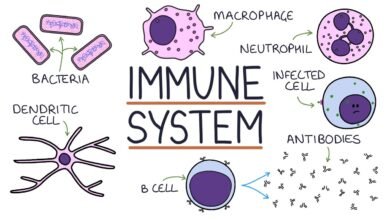Finding Hope After Miscarriage: A Journey to Recovery
The journey to parenthood is filled with excitement and anticipation, but it can also bring about unexpected challenges.
Miscarriage, the loss of a pregnancy before the 20th week, is a heartbreaking experience that affects many couples worldwide. While it is a sensitive and difficult topic, understanding the signs, symptoms, and treatment options is essential for those who may encounter this unfortunate situation.
In this article, we will explore ten crucial points about This problem, offering valuable insights to help those in need.
1. Recognizing the Signs:
This problem may present with various signs, including vaginal bleeding, cramping, and passing tissue from the vagina. It is crucial to reach out to a healthcare professional immediately if any of these symptoms occur during pregnancy.
2. Types of Miscarriage:
There are different types of miscarriage, such as threatened, incomplete, and missed. Each type requires careful evaluation and appropriate medical attention.
3. Common Risk Factors:
While miscarriage can happen to anyone, certain risk factors increase its likelihood. Age, pre-existing medical conditions, and lifestyle choices, such as smoking or excessive alcohol consumption, may contribute to the risk.
4. Emotional Impact:
Miscarriage can have a profound emotional impact on individuals and couples. It is essential to acknowledge and process feelings of grief, loss, and sadness. Seeking support from loved ones or counseling can aid in healing.
5. Seeking Medical Help:
If experiencing symptoms or suspecting a miscarriage, seeking prompt medical attention is crucial. Healthcare providers can perform ultrasounds and tests to confirm and assess the situation.
6. Treatment Options:
The appropriate treatment for miscarriage varies depending on the type and stage. It may involve watchful waiting, medication to aid the process, or a minor surgical procedure called dilation and curettage (D&C).
7. Physical Recovery:
Physically recovering from a miscarriage takes time and varies from person to person. Rest, self-care, and follow-up appointments with healthcare providers are essential aspects of the recovery process.
8. Trying Again:
Couples may feel anxious or hesitant about trying to conceive again after a miscarriage. It is essential to have open discussions with healthcare professionals and take the necessary time to heal emotionally and physically.
9. Supporting Each Other:
Couples experiencing a miscarriage should lean on each other for support. Open communication, empathy, and understanding can strengthen the bond during this challenging time.
10. The Road Ahead:
Remember that healing from a miscarriage is a gradual process. It is essential to be patient with oneself and focus on the future with hope and optimism.
In conclusion, facing a miscarriage is a difficult and emotional journey. By recognizing the signs, seeking medical attention, and providing and seeking support, individuals and couples can navigate this challenging experience with strength and resilience. Remember that you are not alone, and there are resources available to help you on your healing path.
Follows Us for More Updates
Like Us on Facebook Page : Click Here
Like Us on Instagram : Click Here






